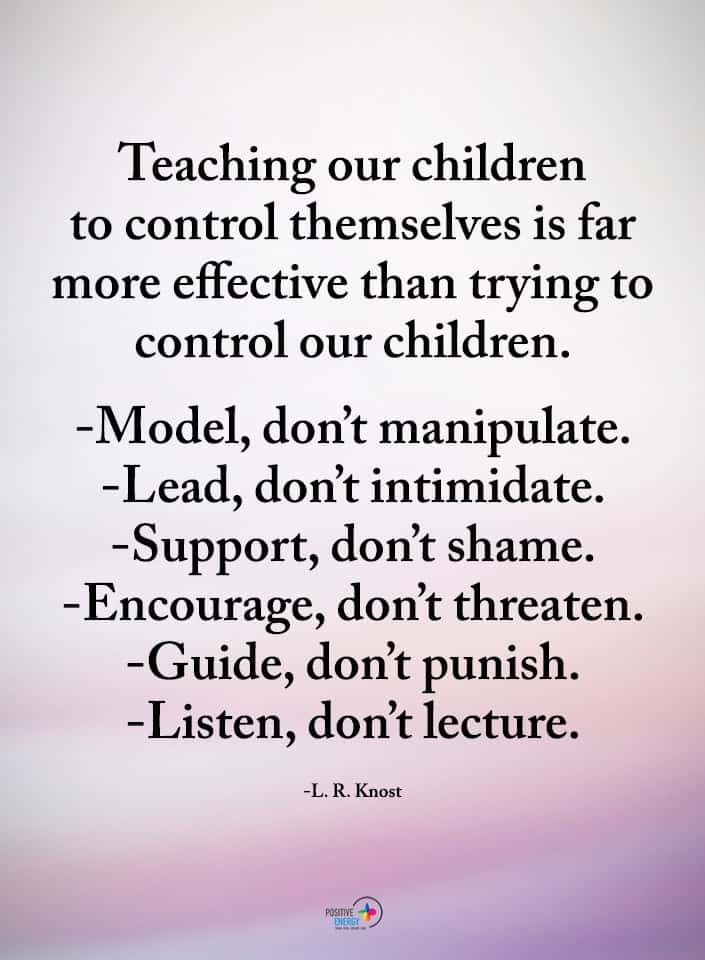Why is childhood depression on the rise?
Children are like malleable clay, taking shape under the hands of time, experiences, and their surroundings. Every touch, pressure, and change molds them, forming their thoughts, behaviors, and feelings. While many of these influences help children grow positively, some factors can make them depressed.
With increasing research and attention on mental health, psychologists and parents seek a greater understanding of the roots of childhood depression.
Today, we will look into these reasons, shedding light on this essential topic. By understanding the causes, you can learn how to support and guide the young ones around you.
6 Factors That Can Lead to Depressed Children
Do you see these signs in your child? If so, it’s time to talk to your child about their feelings. It may also be appropriate to seek help from a professional counselor.
1 – Big Life Changes Can Cause Kids to Be Depressed
Children, with their developing emotional and cognitive systems, often perceive the world around them with heightened sensitivity. When confronted with substantial life changes, this sensitivity can make them especially vulnerable to emotional turbulence.
Here are a few life changes; imagine how each can impact a child:
Imagine the anxiety of stepping into a new school, a place where the faces of strangers replace familiar faces. The routines they’ve grown accustomed to turn upside down. Also, the comfort of a known environment disappears. It’s akin to an adult moving to a completely different city or country, having to start anew without their established support systems.
Another significant life change is divorce. For a child, the union of their parents forms the bedrock of their sense of security. Witnessing this union fracture can be deeply unsettling. Questions about love, trust, and permanence may arise, sometimes causing them to internalize blame or develop fears about their future relationships.
The death of a family member, especially if it’s a primary caregiver, can also be a profound shock. Grief is a complex emotion, even for adults. Children may not fully understand the permanence of death. Thus, they feel a confusing mix of sadness, anger, and longing.
Moving to a new home can be more than physically relocating. It means leaving behind familiar neighbors, the comfort of a known bedroom, and perhaps even a beloved pet. All these instances of change can disorient a child, leading to feelings of sadness or, in more severe cases, depression.
2 – Bullying: The Damaging Effects Can Cause a Child to Become Severely Depressed
The school playground, often a place of fun and laughter, can unfortunately also be a setting for negative experiences like bullying. When others repeatedly pick on, make fun of, or physically hurt another child, the repercussions can be severe. They can even be long-lasting and carry into adulthood if left unresolved.
Bullying can strip away a child’s self-esteem. Constant negative remarks or acts of aggression can make a child question their worth. They might begin to feel something inherently wrong with them, leading to a damaging self-perception.
Moreover, bullying can lead to feelings of isolation. A child may feel that they’re alone in their struggles, especially if they believe nobody will understand or stand up for them. This isolation can worsen if they’re excluded from group activities or shunned by peers.
The constant stress from anticipating bullying can also manifest physically. Children may develop sleep problems, stomach aches, or even start to exhibit symptoms of anxiety disorders.
Bullying isn’t just a phase or a rite of passage that kids should endure. It’s a significant issue that can profoundly affect a child’s emotional and physical well-being. Parents, educators, and society must recognize its harmful impacts and strive for solutions.
3 – Stress in Children: More Than Just Child’s Play
Often, adults believe that childhood is a period free from worries, a time of play and endless exploration. However, the reality is that children experience stress and trauma, sometimes at levels comparable to adults. Their world, though seemingly simple, can be filled with pressures and challenges that weigh on their young minds.
Homework, for instance, isn’t just about doing an assignment. For a child, it can represent the daunting task of understanding new information, the fear of failing, or the pressure to excel. Tests amplify this stress, serving as concrete assessments that determine their academic trajectory or how teachers and peers perceive them.
Social dynamics present another layer of complexity. The playground isn’t just about games; it’s a microcosm of society where kids learn about friendships, alliances, rejections, and hierarchies. The desire to fit in, to be liked, and to find one’s place can be a significant source of anxiety.
Remember the first time you felt left out? For kids, such experiences can be intensely stressful.
So remember – childhood stress isn’t trivial. It’s real, palpable, and has consequences. Prolonged stress can lead to feelings of sadness, behavioral changes, and even symptoms akin to depression.
4 – Health Issues: The Emotional Toll on Young Minds
Physical health and mental well-being share an undeniable connection, especially in children. While adults have developed coping mechanisms over years of experience, children are still learning how to handle discomfort and illness.
A simple flu, while physically taxing, can also be emotionally draining for a child. The feeling of weakness, coupled with the inability to partake in daily activities, can make them feel isolated from their peers. They might miss out on a particular school event or a playdate, which, in their world, can be a big deal.
Long-term illnesses or chronic conditions add another layer of emotional challenges. Studies show that a child grappling with such a health issue not only deals with direct physical discomfort but also grapples with understanding why they’re different from others. Questions like, “Why me?” or “Will I ever get better?” can cloud their thoughts.
Furthermore, frequent hospital visits, treatments, or medications can make their world seem even more alien. They might feel out of place, especially if their routines change constantly. That can also happen if they sense an undercurrent of worry from their parents.
Health issues in children aren’t just about the physical ailment. They carry an emotional burden that can lead to feelings of sadness, isolation, and, in more prolonged cases, depression. Recognizing and addressing these emotional aspects is crucial for holistic healing.
5 – Family Problems: The Underlying Strain on Children
The family unit forms the foundational environment in which a child grows, learns, and shapes their perception of the world. In an ideal situation, this environment is nurturing, supportive, and stable. However, not all children have the privilege of growing up in such settings.
Conflicts within the family, between parents, siblings, or extended family members, can profoundly impact a child’s emotional landscape. Witnessing regular arguments or parental depression can instill feelings of insecurity. They might internalize the conflict, mistakenly believing they are the cause or source of unhappiness.
Feeling neglected or overlooked in a family is another critical concern. Children thrive on attention and validation. If they sense parental issues or other family problems, it can lead to feelings of worthlessness or a belief that they are unlovable.
It’s crucial to understand that children are highly perceptive. Even if they don’t fully comprehend the intricacies of adult problems, they can pick up on emotional atmospheres, tension, and unhappiness. These perceptions, when not addressed, can manifest as sadness, anxiety, or behavioral changes.
6 – Chemical Imbalance: The Invisible Culprit Causing Kids to Get Depressed
The human brain is a complex organ driven by numerous chemical reactions that dictate emotions, reactions, and overall mood. These chemicals, neurotransmitters, help ensure our emotional well-being.
In certain instances, due to genetic factors, environmental triggers, or other reasons, there might be an imbalance in these neurotransmitters. Serotonin, dopamine, and norepinephrine are some of the primary neurotransmitters associated with mood regulation. When there’s an imbalance, especially a deficiency, it can lead to mood disorders, including depression.
For children, understanding or articulating this internal chemical turmoil can be challenging. They might not know why they feel persistently sad, irritable, or uninterested in activities they once loved. This lack of understanding can worsen their feelings, leading to isolation or confusion.
Recognizing the possibility of a chemical imbalance is vital. It underscores the fact that depression or mood disorders in children aren’t always due to discernible external factors. Sometimes, it’s an internal imbalance that needs medical intervention and understanding. With the right help, such as therapy or medical treatment, children can navigate these challenges more effectively.

6 Things Parents Can Do to Help Their Depressed Child
Parenting a child who might be experiencing depression can be one of the most challenging tasks a caregiver faces. However, with understanding, patience, and the right strategies, parents can offer invaluable support. Here are six actionable steps to consider:
1 – Open the Lines of Communication
Start by creating a safe space for your child to express their feelings without fear of judgment. That means actively listening, avoiding immediate solutions or dismissals, and being present. Ask open-ended questions to encourage your child to look deeper into their feelings.
Remember, it’s not about having all the answers but showing your child that their emotions are valid and they’re not alone in navigating them.
2 – Seek Professional Help for a Depressed Child
If you suspect that your child’s mood is more than just a fleeting phase, it might be time to consider professional intervention.
A pediatrician can offer initial guidance. However, consulting a child psychologist or psychiatrist will provide specialized insight. They can conduct assessments, offer therapy sessions, and recommend potential treatments if necessary.
3 – Establish a Routine
Children often find comfort in routine. Establish set meal times, a regular bedtime, or weekend family activities. That’s important, as having a structured environment can offer predictability in an otherwise tumultuous emotional landscape.
It can also help ensure they get adequate sleep and nutrition, both crucial for mental health.
4 – Limit Stressors for Your Depressed Child
If specific triggers exacerbate your child’s mood, like academic pressures or overly busy schedules, try to manage or reduce them.
That might mean coordinating with teachers, reducing extracurricular activities, or finding alternative methods of learning that suit your child’s needs better. Remember, it’s about quality, not quantity.
5 – Encourage Social Interaction
While it’s essential to respect your child’s need for space, please encourage them to maintain connections with friends or engage in group activities they enjoy. Social interactions can act as a buffer against feelings of isolation.
Of course, that doesn’t mean pushing them into situations they’re uncomfortable with. Instead, gently nudge them toward positive, supportive social settings.
6 – Educate Yourself and Your Family About Childhood Depression
Understanding depression and its nuances can make a significant difference. Read up on the topic, attend workshops, or join support groups. The more you know, the better you’ll be to support your child.
Additionally, educate other family members, especially siblings. They play a crucial role in the family dynamic and can be allies in supporting a child facing depression.
Final Thoughts on Identifying and Helping a Depressed Child
Supporting a child with depression is a journey, one that requires patience, understanding, and consistent effort. By being proactive and compassionate, parents can play a pivotal role in guiding their children towards healing and well-being.
Recognizing depression in children is both crucial and challenging. Amidst the natural ups and downs of childhood, consistent patterns of sadness or withdrawal stand out as calls for understanding and intervention.
As parents, our primary role is to ensure our children feel seen, heard, and supported. Early identification and timely intervention can pave the way for emotional well-being.
So, let’s remain vigilant, compassionate, and proactive in our approach, ensuring our children have strength and resilience. We must strive for a world where no more children are depressed.
The post Psychologists Explain What Causes Children to Become Depressed appeared first on Power of Positivity: Positive Thinking & Attitude.




